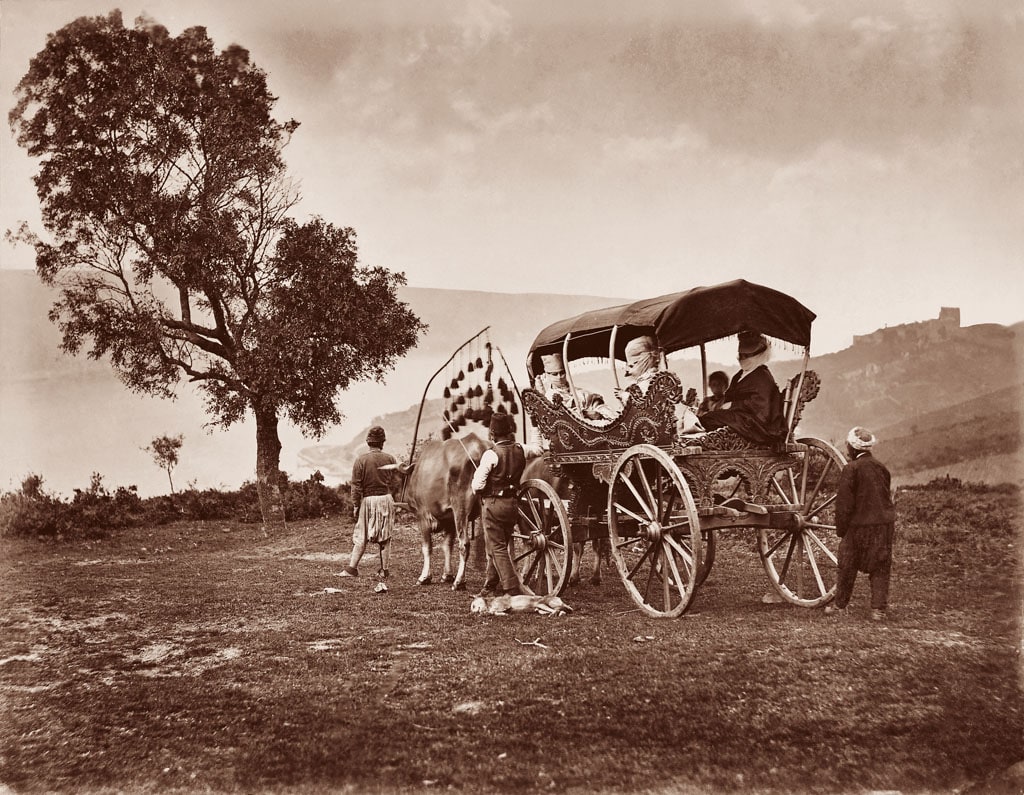Wind demons and crystal palaces... Shimmering aquatic gill-men and limitless vistas of outer space... For over eight decades Russian cinema has had an inspired filmmaking tradition that encompasses science fiction, folkloric fantasy, and absurdist humor, producing wildly entertaining films. Pera Film in collaboration with Seagull Films presents From the Tsars to the Stars: Russian Fantastic Cinema, a program featuring rare films from the Russian cinema’s long tradition of fantastical science fiction.
“Fantastika is a general term we’re using for all of it: science fiction, fantasy, horror, fables,” says Robert Skotak, co-conceiver of the series and an Oscar winner for his special-effects contributions to Aliens and Terminator 2: Judgment Day. “I mean, Cosmic Voyage [1936], which hasn’t really been seen in the West whatsoever, is a heroic tale of a Communist society traveling to the moon! It was made during Stalin’s purges and the push to modernize. But it’s also as accurate a picture of space travel as one could conjecture at the time. Fanciful sequences of stop-motion animation, extravagant effects: This is an entertaining movie!”
Beginning with the pioneering animation of Ladislaw Starewicz, through the silent classic Aelita: Queen of Mars, and on to the astonishing visions of Aleksandr Ptushko and Pavel Klushantsev, Russian genre cinema was amazingly colorful, technologically advanced, and thematically ambitious. Master Andrei Tarkovsky took this further, fashioning the highly philosophical and feverishly cinematic sci-fi epics Solaris and Stalker. Still other films, such as Karen Shakhnazarov's remarkable, black comic meditation on Soviet history during the Perestroika era Zero City and Alexei Fedorchenko's First on the Moon, are crafty allegories of an ideological system in its waning days.
Years before Stanley Kubrick’s masterpiece 2001: A Space Odyssey, Soviet visual-effects artists were creating breathtaking visions of humankind's voyage to outer space. In retrospect, an added fascination of these films is the Soviet party line suffusing fictive space exploration with a real-world mission—to bring the revolution, at least figuratively, to the solar system and beyond.
From the Tsars to the Stars: Russian Fantastik Cinema was originally presented in 2006 by Seagull Films, the Film Society of Lincoln Center and the American Cinematheque in collaboration with Concern Mosfilm, Russian State Archive Gosfilmofond and M-Film Studio. The program is curated by Alla Verlotsky, Robert Skotak and Dennis Bartok.

In collaboration with
October 28
October 30
20:00 Aelita, Queen of Mars
October 31
14:00 The Amphibian Man
November 7
19:00 To the Stars by Hard Ways
November 8
16:00 Aelita, Queen of Mars
18:00 The Amphibian Man
November 11
17:00 Planet of Storms
November 14
19:00 Solaris
November 21
19:00 First on the Moon
November 22
16:00 Planet of Storms
18:00 To the Stars by Hard Ways
November 28
15:00 Solaris
18:00 Stalker
December 9
19:00 Zero City
December 12
19:00 Stalker
December 13
14:00 Zero City
16:00 First on the Moon
October 30
20:00 Aelita, Queen of Mars
October 31
14:00 The Amphibian Man
November 7
19:00 To the Stars by Hard Ways
November 8
16:00 Aelita, Queen of Mars
18:00 The Amphibian Man
November 11
17:00 Planet of Storms
November 14
19:00 Solaris
November 21
19:00 First on the Moon
November 22
16:00 Planet of Storms
18:00 To the Stars by Hard Ways
November 28
15:00 Solaris
18:00 Stalker
December 9
19:00 Zero City
December 12
19:00 Stalker
December 13
14:00 Zero City
16:00 First on the Moon
Program Trailer

Following the opening of his studio, “El Chark Societe Photographic,” on Beyoğlu’s Postacılar Caddesi in 1857, the Levantine-descent Pascal Sébah moves to yet another studio next to the Russian Embassy in 1860 with a Frenchman named A. Laroche, who, apart from having worked in Paris previously, is also quite familiar with photographic techniques.
Tuesday - Saturday 10:00 - 19:00
Friday 10:00 - 22:00
Sunday 12:00 - 18:00
The museum is closed on Mondays.
On Wednesdays, the students can
visit the museum free of admission.
Full ticket: 300 TL
Discounted: 150 TL
Groups: 200 TL (minimum 10 people)